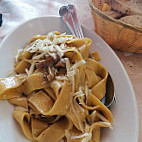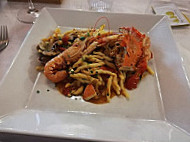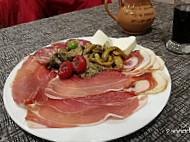
Telefono: +33186995715,+393382961502
Indirizzo: Via Roma 6 Palazzo Viscardi, 82019, SANT'AGATA DE' GOTI, Italy
Città: SANT'AGATA DE' GOTI
Menu Piatti: 23
Recensioni: 1302
Sito Web: http://www.agaperistorante.it
"per tornare all'agape di sant'agata dei goi dopo un anno, per rassicurare le sensazioni che mi avevano già lasciato positivamente sorpreso e per aver già vissuto un'esperienza sensoriale e olfattiva unica, mi rendo conto, invece, che i fratelli piscitelli, per il modo in cui hanno messo il nuovo menu, confermano una coppia perfetta per una sala innovativa proiettata verso ulteriori obiettivi di prestigio. Dishive in dettaglio, esteticamente e qualitativamente, che, oltre a riflettere stagionalità e territorio, esprimono delicatezza e modernità. Niente è lasciato al banale, all'aperta', all'improvvisazione. Dal pane, vino, alla reception, alle norme precauzionali anticovid, tutto è perfetto. e poi assaggiare dopo aver assaggiato i vari corsi di apertura tutti lascia prevedere, soprattutto dopo aver ottenuto il buffalo campana dal cuore di tartare di gamberetti imperiali che la strada per una futura stalla è più che mai vicina. Congratulazioni."
Menu completo - 23 opzioni
Tutti i prezzi sono stime su Menu.
Primi Piatti
Secondi Piatti
Pizza
Degustazioni
Riso
Antipasto
Piatti Di Manzo
Pollo
Portata Principale
Antipasti
Pasta Fresca – Tagliatelle Fresche
A Richiesta
Dessert
Insalate
Pre Dessert
Pesce
Aperitivo
Piccola Pasticceria
Pasta
Aperitivo Contemporaneo
Indirizzo

Recensioni
Categorie
-
Sushi Delizia il palato con la nostra deliziosa selezione di sushi, che include ingredienti freschi, rotoli sapientemente realizzati e nigiri tradizionali. Ogni boccone offre un'armoniosa fusione di sapori, promettendo un vero gusto del Giappone.
-
Pasta Delizia nella nostra selezione di piatti di pasta classici e contemporanei, ognuno preparato con ingredienti freschi e di qualità e salse saporite che catturano l'essenza della cucina italiana in ogni boccone. Visualizza piatti
-
Asiatico
-
Terrazza Pranza all'aperto sulla nostra splendida terrazza, dove puoi goderti un delizioso pasto tra viste mozzafiato e una fresca brezza. Perfetto per un pranzo rilassante o una cena romantica sotto le stelle.
Servizi
-
Wifi
-
Terrazza
- Piatti
-
Mastercard
- Menu
-
Carta Visa














